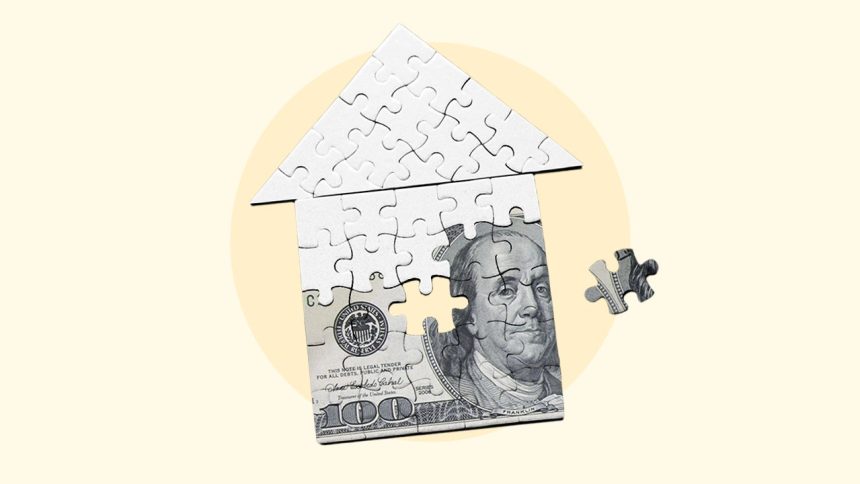If you’re a homeowner, you’re probably eligible for a property tax deduction to reduce your federal income tax bill. To take advantage of it, though, you must itemize your deductions.
How much of your property taxes are deductible
For tax years 2024 and 2025, the property tax deduction is worth up to $10,000 — that’s the maximum amount of property tax liability that you can deduct. As with any tax deduction, the dollar amount you deduct reduces your adjusted gross income, and thus how much of your income is subject to tax.
But, as noted above, you must itemize to claim this deduction. However, in recent years, many homeowners have elected not to itemize their taxes, because it often makes more financial sense to claim the standard deduction. That’s because of a law — the Tax Cuts and Jobs Act, or TCJA, of 2017 — that capped the amount of state and local taxes that could be deducted, including state income taxes and property taxes, at $10,000 ($5,000 for married filing separately filers). This state and local tax deduction is often referred to as the SALT deduction.
At the same time, the TCJA almost doubled the amount of the standard deduction. For many taxpayers, that makes claiming the standard deduction a smarter move. (You want to choose the deduction — standard deduction or total itemized deductions — with the highest dollar amount, to reduce your tax bill as much as possible.)
“I’ve been a tax professional for more than 30 years, and I would say prior to 2018, probably 80 to 90 percent of my clients itemized deductions,” says Tom O’Saben, an enrolled agent and director of tax content and government relations at the National Association of Tax Professionals. “Now it’s just the opposite. Between only about 10 and 15 percent are able to itemize because of that SALT limitation and that higher standard deduction.”
Keep in mind, though, that the cap on the SALT deduction is set to expire at the end of 2025. Congress may opt to extend the cap, lift the cap or change the cap’s dollar amount — it’s not clear yet what will happen.
All that said, keep reading. Because it’s possible you’re one of those taxpayers who would still benefit from itemizing your deductions, including your property taxes.
What is the property tax deduction?
The property tax deduction lets taxpayers deduct the money they paid in property tax for their home during the tax year.
With the SALT cap, taxpayers often don’t rack up enough in other itemized deductions — such as medical expenses and charitable donations — to make itemizing a better option than claiming the standard deduction. In the 2024 tax year, the standard deduction is worth $29,200 for married filing jointly filers and $14,600 for single filers.
Still, O’Saben advises clients not to make assumptions, and to go ahead and gather property tax information prior to doing your taxes for two reasons:
-
There’s always a chance your deductions will, in fact, exceed the standard deduction. Perhaps that’s because you had extra medical expenses. Or maybe you made a hefty amount of donations during the tax year. (A tax professional can help you decide the most beneficial way to file your federal taxes. Here are 5 tips to find the best tax preparer for your situation.)
- The property taxes you paid could affect your state income taxes. For example, O’Saben says, “in the state of Illinois, if your income is under $250,000 for a single person, or $500,000 for a married couple filing jointly, there is a credit for 5 percent of the real estate taxes on your primary residence.” So if you paid $5,000 in property tax for a home in Illinois, you’d get a $250 credit on your state taxes. “That’s nothing to sneeze at. That might pay for the tax preparation fee, for example,” O’Saben says.
Keep in mind:
Can’t find your tax bill, or maybe your mortgage company pays the bill for you out of an escrow account? You can get your property tax information from either your mortgage paperwork or your local county online portal.
How the property tax deduction works
If you do find that your circumstances warrant itemizing deductions, you’d enter your property tax costs of up to $10,000 on Schedule A. (Find out more about all of the various federal tax forms, including Schedule A.) That amount, combined with other deductions not restricted by SALT, will reduce your tax liability.
Keep in mind that if you bought a home during the tax year, the previous owners at closing may have provided money to pay the taxes for the time of the year they lived in the home. But you can only deduct taxes that you paid, O’Saben says.
Need an advisor?
Need expert guidance when it comes to managing your money?
Bankrate’s AdvisorMatch can connect you to a CFP® professional to help you achieve your financial goals.
What property taxes can you deduct?
To deduct property taxes, they must have been paid on your primary residence. You can also deduct property taxes on a second home, but there are additional rules you must heed if you rent out that home on a regular basis.
“Generally, your property taxes for business use aren’t limited by that SALT cap,” says Carl Breedlove, lead tax research analyst with The Tax Institute at H&R Block. “If you have a rental that you rent out all year long, and it gets used fairly regularly, you’ll be able to deduct that [property tax], whether it’s over $10,000 or not.”
Taxes paid on rentals are itemized using Schedule E, he added. Those unsure of how to deal with this complication would be wise to seek out a tax professional for help, Breedlove says.
Note also that your primary residence doesn’t have to be a house. Condominiums, house trailers, mobile homes, cooperative apartments and houseboats may all qualify too, as long as they contain sleeping space, toilet and cooking facilities, according to the IRS.
Other tax tips for homeowners
Examples of homeowner costs that are not eligible for a deduction include utilities, home insurance premiums, mortgage insurance premiums and homeowner’s association fees.
But don’t forget: If you made any improvements to your home that improved its energy efficiency, be sure to consider those while doing your taxes. A tax credit is available for qualified investments, including the installation of a new furnace, windows and doors and insulation.
Finally, it’s a good idea to keep track of major improvements to your home throughout the years, Breedlove says. That’s because improvements can be added to your original basis — what you bought the home for — to reduce your capital gains later, when you sell your home.
“What you bought the home for, and then when you make improvements,” Breedlove says, “you’re going to need to know that in order to calculate gain.” It may feel like a chore to keep track now, but you’ll thank yourself later when capital gains need to be figured out after the sale of your home in the future.
“Record-keeping is a big deal for everybody, not just businesses,” Breedlove says.
Read the full article here














